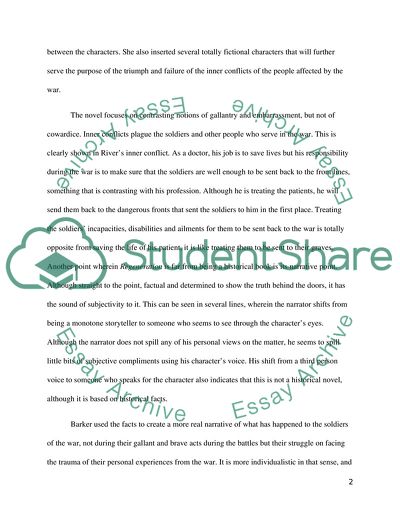Cite this document
(Issue of War in Regeneration Novel Book Report/Review Example | Topics and Well Written Essays - 1750 words, n.d.)
Issue of War in Regeneration Novel Book Report/Review Example | Topics and Well Written Essays - 1750 words. https://studentshare.org/military/1745008-short-paper
Issue of War in Regeneration Novel Book Report/Review Example | Topics and Well Written Essays - 1750 words. https://studentshare.org/military/1745008-short-paper
(Issue of War in Regeneration Novel Book Report/Review Example | Topics and Well Written Essays - 1750 Words)
Issue of War in Regeneration Novel Book Report/Review Example | Topics and Well Written Essays - 1750 Words. https://studentshare.org/military/1745008-short-paper.
Issue of War in Regeneration Novel Book Report/Review Example | Topics and Well Written Essays - 1750 Words. https://studentshare.org/military/1745008-short-paper.
“Issue of War in Regeneration Novel Book Report/Review Example | Topics and Well Written Essays - 1750 Words”. https://studentshare.org/military/1745008-short-paper.


